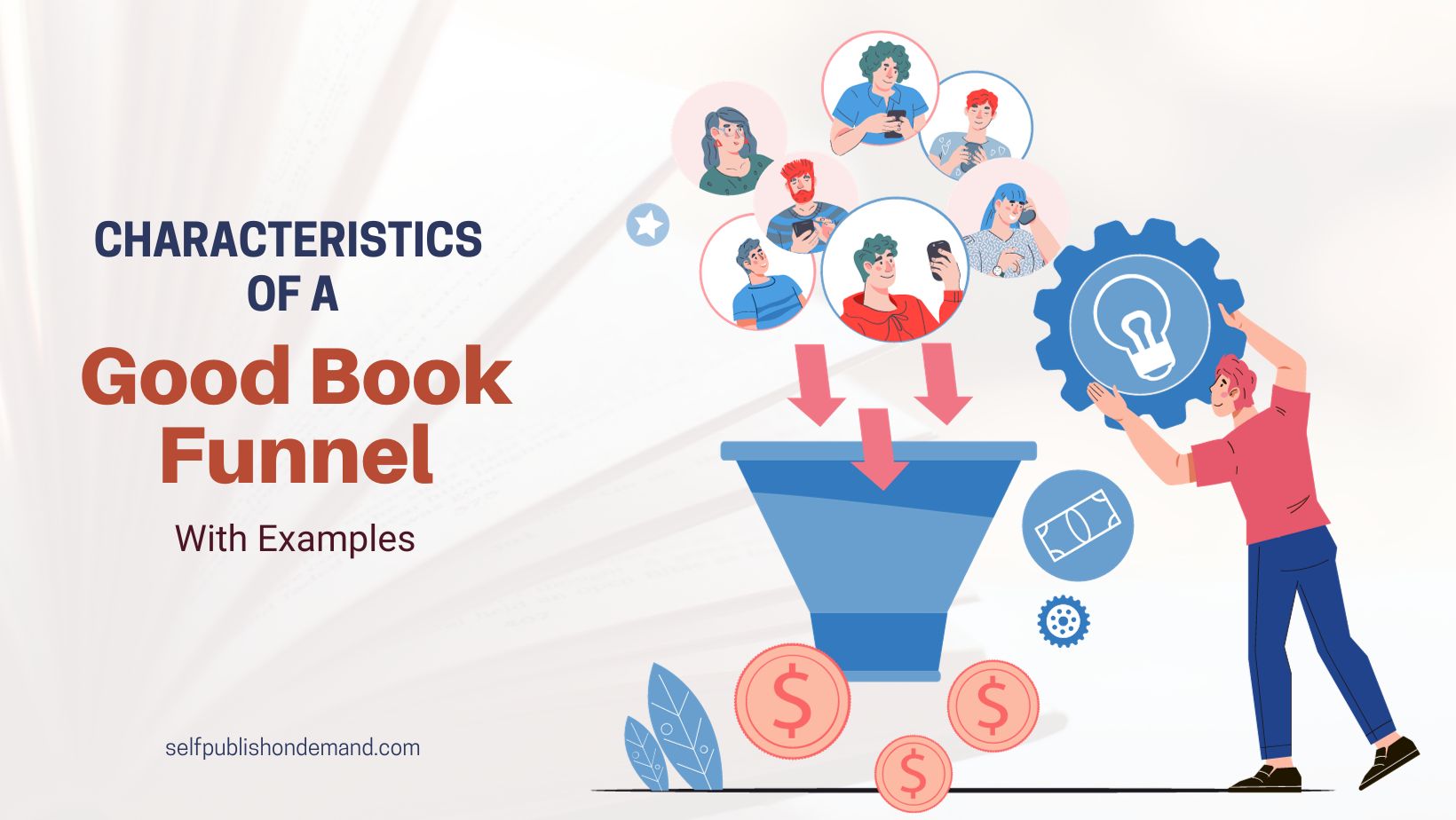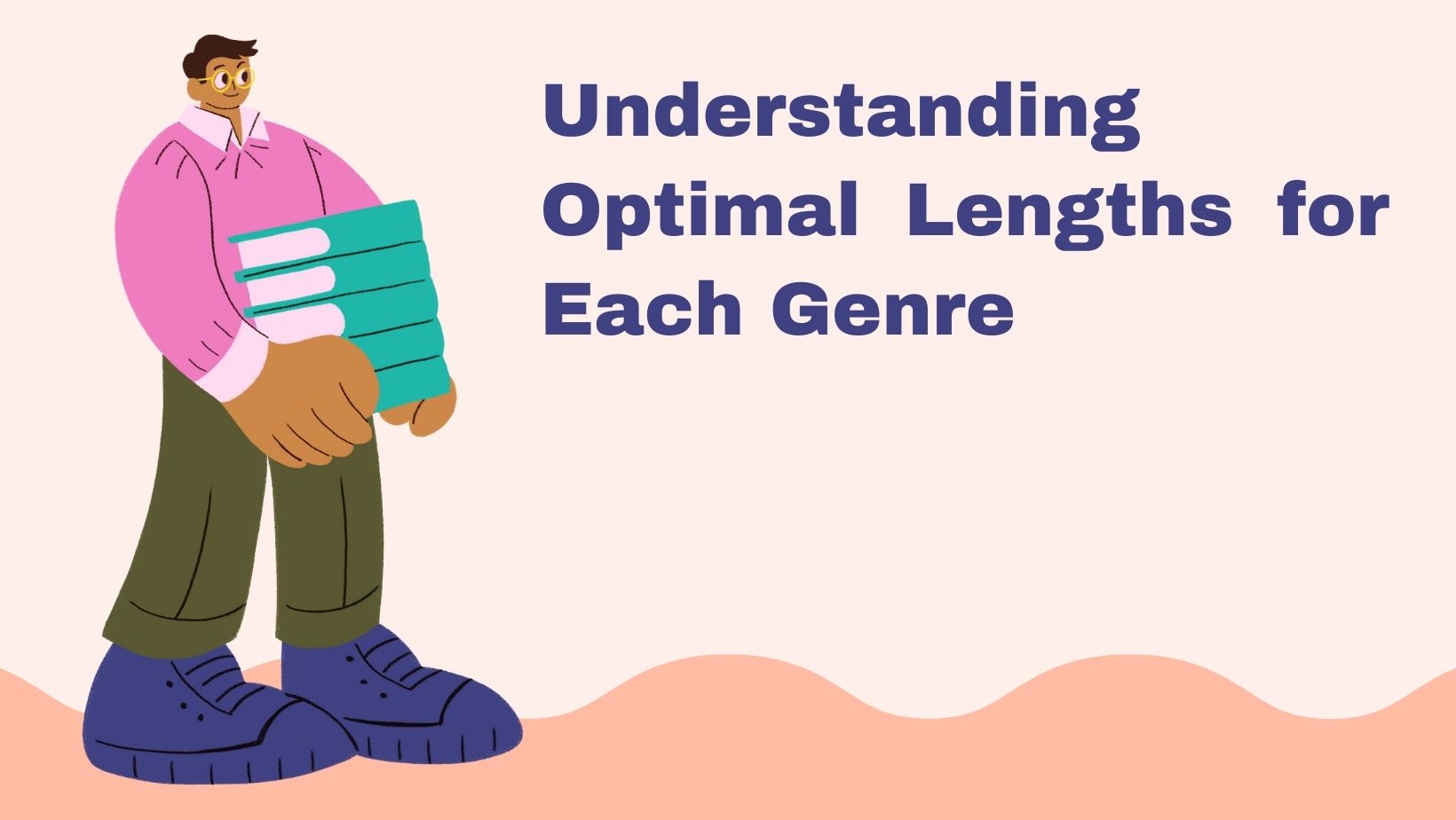Social media is a commonly used but often under-utilized channel for authors. Instead of effectively leveraging this platform, many authors simply spend excessive time on posting without focusing on building relationships with readers.
In today’s digital age, social platforms have become essential tools for authors to connect with readers, promote their work, and cultivate a thriving online presence. Some authors even make the mistake of solely sharing “buy my book” posts, resulting in the loss of followers. Additionally, they may waste time engaging with accounts unrelated to the literary or film industry, thus attracting a following that is unlikely to engage with or purchase books. These ineffective strategies can consume valuable time and prevent the creation of loyal fans and increased book sales.
However, Self publish On-demand aims to change this situation. To provide valuable insights with practical strategies and insider tips to harness the power of social media and propel your writing career to new heights. Get ready to amplify your voice, captivate readers, and forge meaningful connections in the ever-evolving realm of Author’s Guide to Social Media.
Table of Contents
Without further delay, let’s delve into the details.
Understanding the Importance of Social Media for Authors whether you are an established author or still in the process of releasing your first book. Social media can serve as a powerful and cost-effective tool to connect with readers and cultivate dedicated fans of your work.
When used correctly, it becomes a platform to generate excitement for upcoming releases, discover new readers, share reviews of your published books, and develop meaningful relationships with readers who appreciate your genre. Moreover, it presents an excellent opportunity to connect with fellow authors who share similar ambitions.
A Compelling Social Media Success Story
Allow me to share a remarkable anecdote that exemplifies the true potential of social media. During the gap between my first and second book releases, I published a short story titled “Blow” to keep my fans engaged.
I didn’t disclose that I was working on the short story until it was ready for publication. Afterward, I shared the cover and links on Facebook and then posted it on my Twitter account, pinning the post to ensure maximum visibility and sharing.
Originally, my plan was to run ads and make a big promotional push to inform people about my new release. Unfortunately, I fell ill with strep throat and had to abandon that plan, hoping to revisit it when I recovered. The following day, I woke up late and received a text from a fellow author friend whom I had met on Twitter. They informed me that my book had reached the eighth position in one of its categories on Amazon. I was genuinely surprised!
Why did this social media approach work?
Well, my social media accounts were populated with actual readers, not just random individuals seeking connections. I consistently shared content that focused on the themes present in my books, such as severe weather and time travel. Moreover, I dedicated a few minutes each day to sharing posts from other authors who wrote similar books, and they reciprocated by amplifying my posts. As organic sales began to flourish, Amazon’s algorithm came into play, exposing my book to interested readers, thus creating a feedback loop of sales.
Although I wouldn’t recommend relying solely on this strategy to launch a book, it demonstrates how my social media efforts alone resulted in significant sales. It’s important to note that social media can easily become a time-consuming distraction if not used wisely. However, with a focused and strategic approach, it can yield excellent results.
When should an author start prioritizing social media?
The answer is: it’s never too early. If you’re diligently working on your manuscript, it’s advantageous to start building a following on social media platforms.
Making the mistake of waiting until your book is released is detrimental. Instead, it’s crucial to fine-tune your social media following by targeting potential readers within your genre.
How can an author achieve this?
Begin by identifying authors who write similar books and follow their fans. By dedicating just five minutes a day or half an hour a week to growing your social media accounts, you will reap the benefits when it’s time to sell your books. However, it’s essential to distinguish between spending time on social media and actively curating content and engaging with readers in your genre. Maintaining focus is key; otherwise, your time investment won’t yield the best results.
Nevertheless, your primary priority should be to get your books out into the world. If you can strike a healthy balance between writing and building your social media presence, go for it. Consider it an investment in your future sales. But be cautious of the time trap that social media can become.
Understand the distinction between personal and business accounts
Before delving into specific social media platforms, it’s important to understand the distinction between personal and business accounts.
Business accounts offer different levels of permissions and capabilities that make them optimal for marketing purposes. However, not all social media business accounts are created equal. Take the time to research the benefits of converting to a business account.
Some platforms may limit your reach when using a business account, while others provide excellent tools upon conversion. For instance, if you want to advertise on Meta platforms, you’ll need a Facebook author page.
To promote your work effectively, create a page connected to your regular account and promote from there. One word of caution: if you decide to use your social media account for marketing, it’s crucial to curate it primarily for your publishing world. Posting your latest short story alongside your political views may not be a wise idea and could lead to backlash.
As Kevin O’Leary, an expert in product branding from Shark Tank, aptly puts it, “When you take a polarized position on any subject, you will alienate 50% of your audience 100% of the time.”
Reaching your audience on social media
There are two main methods: organic and paid reach. Organic reach refers to the followers who see your posts in real time on their feeds.
This includes people who follow you, engage with your content, or follow similar accounts, depending on the platform. On the other hand, paid reach involves purchasing ads or boosting posts to extend your reach. Paid efforts can either be a waste of money or strategically focus your efforts on sales, platform growth, or engagement.
Social media platform(s) depends on various factors
The most obvious consideration is the platform’s active user base. To make the best use of your social media time, consider your target readership. For example, if you write women’s fiction with a target audience of women over thirty, Pinterest could be a suitable platform to start with, boasting an active user base of 431 million, with 77% being women. An additional advantage of Pinterest is that its content is indexed on Google, ensuring that anyone searching for you will find your content there.
If you are an author of young adult books centered around dragons, your target audience tends to be younger. In this case, dedicating more time to platforms like TikTok or Instagram may be advantageous for connecting with your readers.
Trying to maintain a strong presence on every social media channel can be challenging and time-consuming. It’s better to select a few platforms that offer significant opportunities to engage with your readers, rather than spreading yourself too thin.
Another factor to consider choosing the right social media platform
It is about the type of content you enjoy creating. If you’re camera shy, platforms like YouTube, which demand video content, may not be a good fit for you. On the other hand, if you prefer writing text and sharing graphics, platforms like Twitter or Facebook might be more comfortable and aligned with your strengths as a creator. It’s essential to match your content preferences with the demographics of the platform.
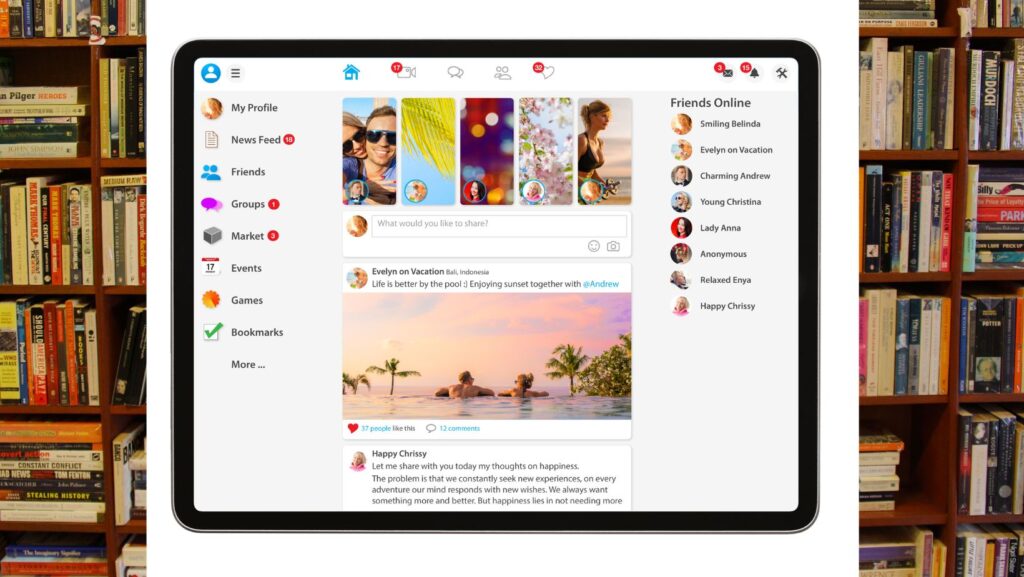
With its massive user base of over 2.93 billion members, it is a fantastic platform for authors. On Facebook, you can share status updates in various formats, such as text, images, and short videos, along with links, either on a page, in groups, or boosted through Facebook ads. Facebook Groups are communities within the platform where people with common interests share posts. Many authors join genre-specific groups to connect with their readership. Facebook Pages, on the other hand, are profiles that businesses and public figures, including authors, can create for their audience to follow. By creating a Facebook Page, you gain access to the Meta Business suite, which allows you to control your marketing and advertising activities on the platform.
Facebook’s Ad tool is highly advanced and provides extensive targeting options based on user demographics. You can tailor your ads to reach specific groups of Facebook users, considering factors like gender, location, age range, interests, and even buying habits. For instance, you can run an ad promoting your new women’s fiction release to women in the United States who make online purchases, aged between 30 and 60 years old, and have shown interest in a bestselling author. Moreover, who writes similar books and owns an eReader. Facebook has access to vast amounts of user data, allowing you to target specific segments effectively.
Why should Authors choose Facebook?
Authors should consider utilizing Facebook due to its status as the largest social media platform globally, offering powerful features to help promote your books to readers. As long as your target audience is active on the platform (excluding platforms primarily geared towards teenagers), Facebook can be a valuable core element of your book marketing strategy.
Strengths of Facebook
- It is a user-friendly platform.
- Boasts nearly 3 billion active users.
- Facebook pixel and ad platforms offer powerful marketing tools.
- Provides opportunities to direct traffic off the platform easily.
Weaknesses of Facebook
- Not as popular among younger audiences.
- Has been involved in various controversies.
- Implements heavy moderation and censorship.
Example of an Author Doing Facebook Well
Shawn Inmon has successfully built his Facebook Author page by infusing his distinct personality and humor into his multiple daily posts. His posts, whether witty jokes, personal stories, or book launches, generate high engagement from his dedicated fans.
The posts are then shown to potential readers on their Facebook pages, resulting in passive book sales.He also includes a call to action in his bio, encouraging readers to sign up for his email list to stay updated on his content.
TikTok
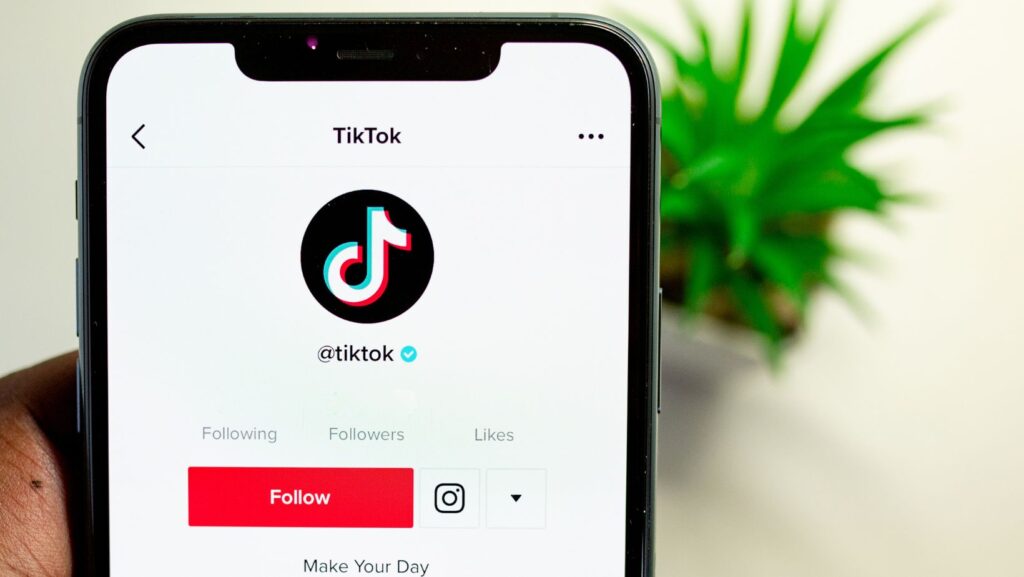
TikTok specializes in short-form video content, often featuring action and quick cuts.
The #Booktok section on TikTok is rapidly growing and serves as a prominent platform for readers to discover books.
Even bookstores like Barnes and Noble dedicate tables to books trending on TikTok. With over 1 billion users, approximately 48% of TikTok’s user base falls within the age range of 10 to 29.
TikTok’s success can be attributed to its unique “For You” page algorithm, which predicts and showcases content of interest to users. Engaging with authors in the #BookTok community on TikTok is recommended to establish your account’s focus and attract a larger audience.
TikTok’s Strengths
- TikTok’s ad tool is still developing, presenting a potentially untapped market for advertising.
- TikTok boasts an enormous and active user base, providing endless opportunities to connect, inspire, and collaborate with like-minded individuals from around the world.
- With its unique algorithm and discoverability features, TikTok offers unparalleled chances for your content to go viral. Get ready to captivate the world with your creativity and make a lasting impact.
- TikTok thrives on trends and challenges, providing a dynamic platform to participate in viral movements and tap into a global conversation. Ride the waves of trends to amplify your reach and engage with a wider audience.
TikTok’s Weaknesses
- The sheer volume of content on TikTok can make it challenging to stand out. However, by refining your niche, staying consistent, and delivering high-quality content, you can carve your path to success.
- The short video format, while advantageous in many ways, can sometimes feel restrictive for conveying in-depth information or narratives. Explore creative ways to make the most of the limited time and leave a lasting impact.
- TikTok’s fast-paced environment caters to short attention spans. Grabbing viewers’ attention in the first few seconds is crucial. Polish your storytelling skills and make every second count to keep your audience engaged.
Example of an Author Doing TikTok Well
- Colleen Hoover gained prominence on #BookTok when her novel “It Ends with Us” became popular on the platform.
- In 2022, she had eight books among the top 25 bestsellers, making her one of the year’s top-selling authors, including the top three titles.
- With over 1.4 million followers, she shares casual short-form content about her books and daily life, building trust and anticipation for her book releases.
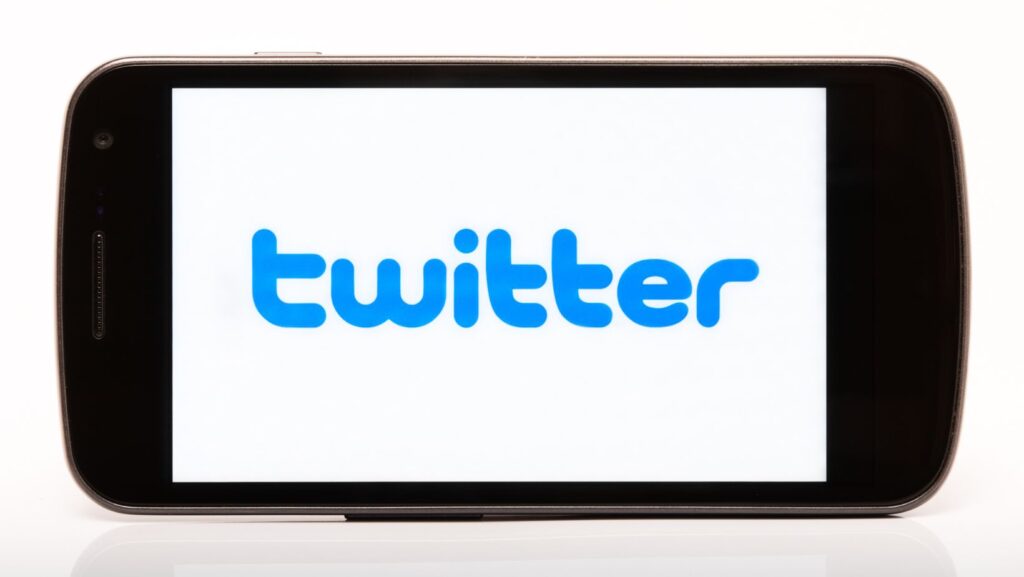
Despite some challenges, Twitter is undergoing transformation and has the potential to incorporate successful features from TikTok without the risk of being banned in certain countries.
Twitter has a large user base of over 450 million as of 2023, with a slightly male-leaning demographic (56%) and a majority aged between 25 and 49 years old.
All genres of books can perform well on the platform due to its extensive user base.Content on Twitter includes short-form text, images, and videos.
The two main feeds on Twitter are the “For You” feed, which showcases personalized content based on user interests, and the “Following” feed, displaying content from chosen accounts.Twitter features trending topics and indexed hashtags, which can be useful for identifying and engaging with popular discussions.
Utilizing trending topics related to your book content can help attract readers interested in specific themes.
Twitter’s Strengths
- It has a large and active audience.
- The platform is constantly evolving and growing.
- Taking advantage of trending topics and hashtags can help reach a broader audience.
- Tweets can be pinned to keep favored content visible at the top of one’s page.
Twitter’s Weaknesses
- Advertising and API capabilities are not the most robust.
- The platform is not specifically geared towards readers or writers.
- As the platform undergoes changes, there may be growing pains.
- Certain link-sharing services, such as Stubstack, are banned, limiting its link-sharing capabilities.
Why Should Authors Use Twitter?
Twitter offers a valuable social media platform for authors, especially if they can tap into trending topics related to their books. It’s user-friendly and well-suited for sharing concise and thought-provoking content, making it a great platform choice.
Example of an Author Doing Twitter Well
Let’s look at KJ Waters as an example of successful Twitter usage. As shown in the screenshot, KJ Waters has amassed over 29k followers on the platform. Initially, she focused on networking and connecting with like-minded authors. Once she gained momentum, she automated her content using social media scheduling tools. KJ primarily shares educational content on authorship and digital marketing, with occasional humorous memes. She also promotes her own books and new releases, often including compelling text and positive reviews. These highly engaging posts are pinned to the top of her Twitter profile to maximize visibility.

Instagram boasts a massive user base of over 1.28 billion, making it one of the largest platforms available. It tends to attract a younger audience, mostly in their mid-20s. The platform’s primary content types are images, videos, and reels, which are short video-form content with extensive editing capabilities. Instagram’s visual nature makes it an excellent platform for conveying a mood that aligns with an author’s brand. For instance, KJ Waters, who writes time travel stories set in storms, shares severe weather images, location photos, historical time periods, and book links.
Similar to Twitter, hashtags play a crucial role in content discovery on Instagram. The equivalent of #BookTok on Instagram is #Bookstagram, where authors and readers engage in conversations about books. Instagram is owned by Meta, which means advertising is handled through the Meta ad platform and can be easily shared on Instagram.
Instagram’s Strengths
- Visual platform that emphasizes aesthetics
- Hashtags have significant power for content discoverability
- Reels are gaining popularity as a content format
- Appeals to a younger audience
Instagram’s Weaknesses
- Not suitable for long-form content
- Challenging to direct traffic off the platform
Why Should Authors Use Instagram?
Authors who enjoy photography and graphic creation can benefit from using Instagram. This doesn’t necessarily mean sharing videos of themselves, but rather any visual content in the form of videos or still pictures that align with their brand.
Example of an Author Doing Instagram Well
Elise Bryant has achieved success on Instagram with over 11k followers. Her Instagram primarily features photos of herself and creative reels. She shares author updates, personal stories, and occasional book marketing posts. Her bio includes a LinkTree, which serves as a centralized location for links to all of her books.

Pinterest stands out as a visual search engine, where users can create and organize pins in the form of images and captions on boards. These pins often lead to longer-form content such as blog posts, recipes, or videos. Creative authors utilize Pinterest to offer fans more in-depth insights into the worlds they’ve created, showcasing costumes, exotic locations, book cover reveals, fan appreciation, and book club extras.
During the writing process, authors can save interesting finds in a secret Pinterest board, unveiling it once the book is published. Pinterest skews towards women (60%) and boasts 463 million monthly users. Pins have a longer lifespan compared to other social media content, providing an evergreen traffic tool for authors. The platform offers automation features, making it a relatively passive marketing channel. Popular scheduling tools like Tailwind are available, and there’s a WordPress integration that automatically shares the latest blog posts to Pinterest.
Pinterest Strengths
- Indexed by Google, enhancing discoverability
- Pins have a longer lifespan than other platforms
- Visual platform that encourages longer content exploration
- Ideal for creating a mood around books
- Hashtags are effective for content discoverability
- Offers more privacy options for authors
Pinterest Weaknesses
- The platform doesn’t emphasize networking as much as other social media platforms.
- Engagement primarily occurs through sharing pins rather than fostering conversations.
Why Should Authors Use Pinterest?
Pinterest is an exceptional tool for authors who have longer-form content, such as blogs. It serves as a valuable social platform for increasing visibility on search engines. Additionally, if authors prefer a platform that requires less engagement compared to other social media platforms, Pinterest can be an ideal choice.
Example of an Author Doing Pinterest Well
Dhonielle Clayton effectively utilizes Pinterest for her author business. Her Pinterest account features a diverse range of boards showcasing various fashion, interior design, and art. Since her books often incorporate imagery aligned with these aesthetics, followers of her boards are naturally drawn to her books. To make it easier for Pinterest followers to find her books, she has created a dedicated board specifically for her books.
Goodreads
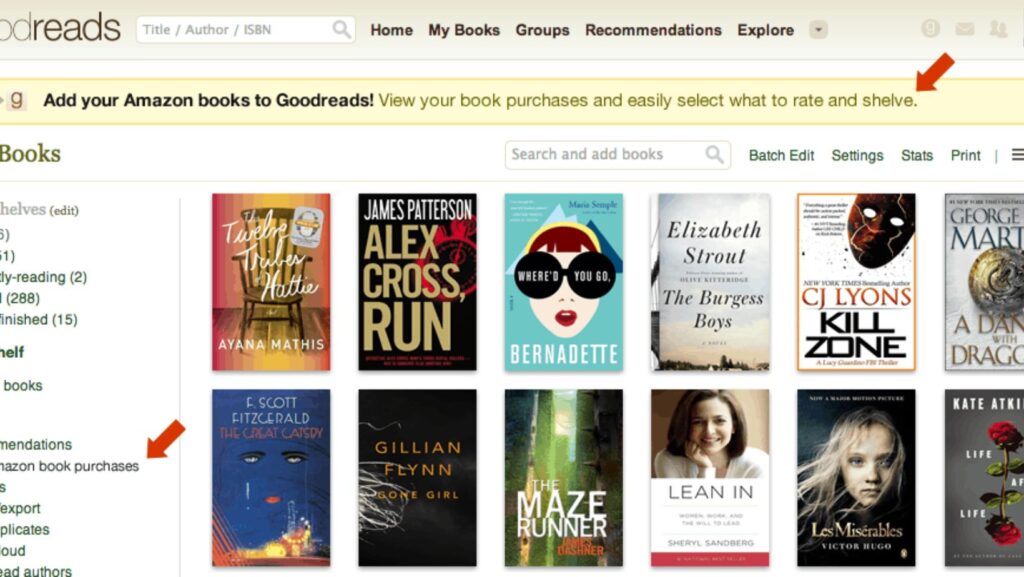
Imagine a social media network designed exclusively for books. Goodreads initially started as a platform where readers could share book reviews and create virtual bookshelves to showcase their reading preferences. Authors can create a free author account on Goodreads to engage with readers. Currently, Goodreads has become a dynamic and engaging platform, with 125 million readers joining. It attracts over 45 million monthly users, with a slight majority of female users (52%). The platform’s user base spans worldwide, with the largest segment being between 25 and 34 years old.
Goodreads serves as a strong platform for authors to connect with their readers. Although it may feel a bit clunky at times due to its age, Goodreads offers excellent customer support through its dedicated team known as “librarians” who can promptly assist with any issues. It stands out as one of the few social platforms where readers can leave reviews for authors’ books.
Goodreads also provides an affordable giveaway program that offers authors a significant platform to give away up to 100 copies of their books. The program costs $119 and offers the option of paperback or ebook prizes. If authors choose to give away ebooks, Goodreads delivers them directly to the winners from their Amazon accounts at no additional cost. Winners receive a free book, automatically adding it to their “To Be Read” pile, which alerts their followers. The books awarded through the program become verified purchases on Amazon, and recipients are encouraged by Amazon to leave reviews.
Goodreads Strengths
- Highly focused community of readers actively seeking books
- Owned by Amazon, providing additional benefits and exposure
- Offers affordable promotion opportunities
Goodreads Weaknesses
- It can be somewhat challenging to navigate
Why Should Authors Use Goodreads?
Goodreads is a no-brainer for authors, since it is a social media network designed specifically for the book space. Putting in a little effort on the platform can yield significant results in the form of free promotion and additional book reviews.
Example of an Author Doing Goodreads Well
Jodi Thomas has successfully integrated her blog with Goodreads, allowing followers to engage with her, rate her books, and participate in her giveaways.
Jodi actively interacts with her fans and addresses their questions in the “Ask the Author” section on Goodreads. She also keeps her bookshelf updated with her current reading choices in real-time, engaging with her audience and providing exposure to other authors’ books. By consistently engaging in these activities, other Goodreads users are likely to reciprocate.
BookBub
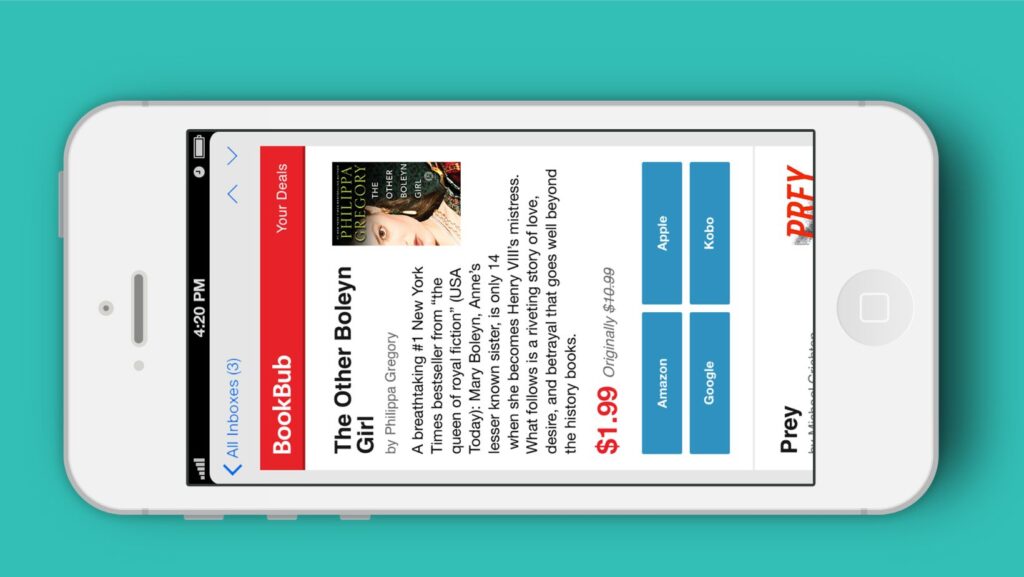
BookBub is a popular platform specifically designed for readers. It originated as an email list for readers to discover books but has now expanded to include an author platform with promotional features, boasting over 15 million users. Unlike other social platforms, BookBub has a crucial distinction. Once an author reaches 1,000 followers, BookBub notifies them when the author releases their next book, delivering a free email from a trusted source. One strategy to grow a following is to leave book reviews for similar authors’ books, which helps increase visibility among their fans.
BookBub also offers a featured deal ad, which is considered one of the most powerful promotional tools in book marketing. Additionally, they provide a pay-per-click advertising platform that can effectively boost book sales. Self-publish On-demand will soon have a comprehensive guide to BookBub advertising available.
BookBub Strengths
- Specifically tailored for readers
- Curated reader lists by genre for promotions
- Provides another avenue for readers to review an author’s work
BookBub Weaknesses
- Not as extensive user base compared to other social media networks
- Pay-per-click ads may have a learning curve
Why Should Authors Use BookBub?
Every author should claim their books on BookBub and start building their following. With some effort, authors can learn the ins and outs of promoting their books through the advertising platform, leveraging one of the most influential book promotion sites available.
Example of an Author Doing BookBub Well
Tamera Alexander, a USA Today best-selling author, has established an impressive presence on BookBub. With over 15 claimed books and more than 18,000 followers, she has become one of the leading authors in the inspirational fiction genre on the platform. Tamera has also left 40 book reviews on authors within her genre, which helps expand her exposure to aligned fan bases.
Social Media Scheduling Tools
Social media scheduling tools offer a convenient solution for authors who wish to automate their social media content. These tools streamline the workload by allowing users to input content in advance and schedule them for specific days and times. Most scheduling tools analyze followers’ behavior to determine the optimal posting times for reaching them. Popular options include SproutSocial, Hootsuite, Buffer, and Recurpost.
However, some authors, like Shawn Inmon, express reservations about scheduling tools, feeling that they miss out on the spontaneous aspect of content creation. Ultimately, the decision to use scheduling tools is a personal choice, but it’s important to be aware of them as an option.
Conclusion
When used effectively, social media can offer exceptional opportunities for authors to connect with industry peers and promote their upcoming books. However, it’s crucial to curate content that attracts an audience interested in your genre and motivates them to purchase books. This concludes our ultimate Author’s Guide to Social Media for authors.
If you are keen to learn more about specific social media networks, Self-publish On-demand has already covered platforms like Twitter and Facebook Pages. If you have suggestions for other social media platforms you’d like us to cover in the future, please let us know in the comments. Alternatively, if you have any questions for KJ or the Self-publish On-demand team, we’ll be happy to provide prompt answers.

